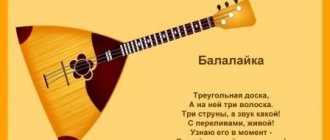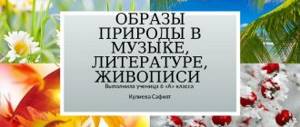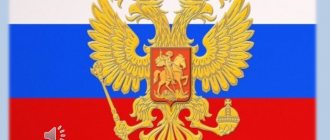- Reports and messages
- Miscellaneous
- Heroic theme in music
Since ancient times, music has accompanied man everywhere.
Primitive people, with the help of primitive songs and dances, communicated with each other and raised their morale before battle. From the very beginning of life, sounds and music are very closely interconnected with humans. Music can be soothing or stimulating. Man has always wanted to discover something new, and music is no exception. What a great variety of musical instruments man has created to develop one of the most beautiful forms of art. Music is a guide to the world of the past and memories. It is enough to hear a short segment of a song or melody that a person listened to at a certain point in his life, and he will immediately begin to remember something most vivid and memorable from that period of life. That is why, to perpetuate heroes and their exploits, they write songs about them.
In general, there are many themes in the art of music. But the heroic theme appeared in music earlier, even than love romances. Even during the Greek and Roman wars, people had already lied to the legends about the exploits of the titans of that time, and ordinary musicians sang them to musical accompaniment. There were even musicians who went with the army to war, in order to cheer up and raise the morale and mood of the soldiers in times of despair and turmoil. Songs of heroic themes helped them in this; they sang the exploits of other brave soldiers, bloody battles, battles and great victories won at great cost of human lives.
Heroic music was most popular in the Middle Ages. Then poor people on every street, in every tavern sang songs about great conquerors who would change their lives for the better. This gave them hope for a better future for themselves and their children; ordinary people wanted change, and therefore believed in the heroism of other people and their exploits. Nowadays there is no such urgent need for heroic songs, but they still exist. Very often we hear them on May 9 to remember the exploits of our ancestors in the Great Patriotic War. To honor the memory of the dead, to always remember this terrible war, which claimed millions of lives.
But now there are new arrangements and adaptations of old heroic songs. And after listening to them, people, of course, no longer have thoughts about conquering new lands and peoples, but such songs, all the same, help to cheer up and find the strength for further action, not to give up, to sacrifice everything and believe in your victory to the end . Even if it concerns work, study, a new project, etc. Therefore, the heroic theme in music is very important. But at the same time, it is also very interesting, because most ancient songs are based on real events. Therefore, in order to find out the events of the past, it is not necessary to study history; it is enough to listen to songs of a heroic nature, and the interested fact can then be studied in detail.
7th grade
Popular message topics
- Table setting
Table setting plays a very important role not only during festive feasts, but also at home. The prepared dish will seem even tastier and more appetizing if it is presented beautifully. - The profession of a doctor
A long time ago, the profession of a doctor appeared. People have always wanted to get rid of many illnesses and diseases. In ancient times, people who knew how to heal were equated with healers who had a special gift. They were the ones who helped fight - Switzerland
Switzerland is a small country in Europe that is famous for its mountain plains, Alpine milk and dark chocolate. Officially speaking, Switzerland is the Swiss Confederation. There are four official languages in this country: French,
Heroic theme in Russian music
Summary of a music lesson on the topic “Heroic theme in Russian music.” 7th grade
- Murtazalieva Elmira Shikhovna, music teacher
Class:
7
Keywords:
quiz, patriotic education, Heroic theme in Russian music, M.I. Glinka, opera “Ivan Susanin”, A.P. Borodin, opera “Prince Igor”, S.S. Prokofiev, cantata “Alexander Nevsky”
Lesson type:
Lesson on systematization and generalization of knowledge and skills.
Lesson objectives:
- Educational:
Recall the works of great Russian composers, which reflect the heroic theme of defense of the Motherland and people's patriotism. To update the life-musical experience of students, to help them realize the value of the Russian classical musical heritage.
- Educational:
Determine the role of music in human life; to cultivate a sense of pride in one’s Motherland, the Russian people and the history of Russia. To cultivate a valuable attitude towards Russian music, towards the great works of Russian composers glorifying the heroic past of our Motherland. Fostering citizenship and love for the history of the Fatherland.
- Developmental:
To teach to find the variety of connections between music, history and literature; conduct intonation-figurative and comparative analysis of music. To form the foundations of students’ musical culture as an integral part of the general spiritual culture; the needs of communication with classical music for spiritual and moral development, self-education, organization of meaningful cultural leisure based on awareness of the role of music in human life, society, and in the development of world culture.
Technologies used:
information technology, communication technology, emotional-artistic and emotional-moral technologies, information and communication technologies, health-saving technology, critical thinking technology, problem-based learning technology.
Lesson Resources
: lesson notes, presentation material, multimedia accompaniment, piano, interactive whiteboard, projector, computer, music and video material.
During the classes
Teacher:
Hello, dear guests!
Guys, I see that you are ready for the lesson. So, let's begin. Attention to the screen. Please look at the pictures and listen to the music fragment. ( Chorus “Glory” from M.I. Glinka’s opera “Ivan Susanin”).
Are you familiar with this music?
( Students' answers
.) Do you know the characters depicted in the paintings?
( Answers from Suvorovites.
) That’s right, these are paintings by famous Russian artists: Pavel Korin “Alexander Nevsky”, Kostroma artist Alexei Baranov “The Feat of Ivan Susanin” and Konstantin Vasiliev “Prince Igor”.
Think about how these works of art are related to each other, what unites them, and guess the topic of today's lesson. ( Students offer options for the topic of the lesson
).
Teacher:
You guessed correctly.
The topic of today's lesson: “Heroic theme in Russian music” Figure 2
.
Teacher:
Based on the topic, guess the purpose of our lesson.
( Students put forward their versions.)
So, the goal of the lesson: to find out how the heroic past of the Motherland is reflected in Russian music.
Figure 3.
Teacher:
Guys, what do you think, is there a need in our time to remember the heroic past of our Motherland and educate young people by studying heroic music?”
( Students answer and prove their opinion.
) Most of the guys think that heroic works are necessary and very important. During the lesson we will try to understand the value of the heroic works of Russian composers, and how they influence our emotions and feelings.
To confirm your thoughts, I want to read the words of the great Russian poet A.S. Pushkin: “It is not only possible, but also necessary, to be proud of the glory of your ancestors; not to respect it is shameful indifference.”
Today we will turn to the heroic pages of Russian history and hear this story in music. The great composers M.I. Glinka, A.P. Borodin, S.S. Prokofiev and others created immortal works that glorify selfless love and devotion to the Motherland, the readiness to defend it from enemies at all times. Let's remember these priceless works and travel back to the historical past. Imagine yourself as Russian warriors, strong, brave, decisive.
I suggest you divide into three glorious squads:
1. People's militia of Minin and Pozharsky, your hero is Ivan Susanin (puts a portrait of the hero on the table, the guys attach emblems with the image of the hero - Ivan Susanin)
.
2. The brave squad of Prince Igor (the guys attach emblems with the image of the hero-Prince Igor).
3. The invincible squad of Alexander Nevsky ( the guys attach emblems with the image of the hero - Alexander Nevsky).
Teacher:
You are divided into three squads, each squad has its own hero. The task is this: you will need to talk about your hero and his feat, described in the musical work of the same name. Let's see who's story will be more colorful and interesting.
So, the first hero is Ivan Susanin, the opera of the same name by M.I. Glinka is dedicated to him. “Glinka is our genius, a composer for whom the people and homeland were the main thing, the main content of his greatest works.”
(B. Asafiev)
Figure 4.
Let's remember what “opera” is.
Students:
Opera is a musical and dramatic performance that combines various types of art, among which the main place belongs to vocal art. All the characters in the opera sing.
Teacher:
Glinka defined the main idea of the opera as follows:
love for the Fatherland.
Representatives of the people's militia will tell us about the feat of Ivan Susanin. Figure 5
Students:
Ivan Susanin is a national hero who gave his life in the name of saving the Fatherland. He was a simple peasant, lived in the village of Domnino with his daughter Antonida and adopted son Vanya. The Poles, planning to kill the Tsar and seize power into their own hands, burst into the house of Ivan Susanin and demanded that he take them to the Tsar and show them the way to Moscow. Ivan Susanin feignedly agreed, but thought to himself: “I’ll go, I’ll go. I will lead the Poles into a swamp, into the wilderness, into a quagmire, into a swamp.” He secretly sends his son Vanya to warn the militia detachment about the impending danger and leads the Poles into the wilderness, into impassable swamps. When the Poles realized that Ivan Susanin had deceived them, they brutally dealt with him, hacking him to death with sabers, but they themselves could not get out of the swampy swamps. This is how Ivan Susanin died heroically, saving the Tsar and his native land from enemies.
Teacher:
In the opera, the image of Ivan Susanin is most clearly revealed in his final aria “You will rise, my dawn!” Let's remember what an aria is?
Students:
Aria is a solo number in an opera for one character, a musical portrait of the hero.
Teacher:
Listen to an excerpt from Ivan Susanin’s aria “You will rise, my dawn.” The snow-covered forest is sternly silent, as Susanin’s farewell aria sounds like a prayer. Susanin, anticipating death, remembers the children and mentally says goodbye to them.
(Watching a video fragment of Ivan Susanin’s aria “You will rise, my dawn”).
Teacher:
What feelings and character traits does Susanin’s aria convey?
Students:
Courage, heroism, self-sacrifice in the name of saving the Fatherland.
Teacher:
The aria conveys the enormous inner strength of a person who meets the last dawn of his life.
Ivan Susanin chose to save the Fatherland, even at the most terrible cost - the cost of his own life. But for him there is no other choice. Let's watch a fragment from the opera. (View a video clip - the death of Ivan Susanin).
Teacher:
In the epilogue of the opera, the chorus “Glory” sounds, the people learn about the feat of Ivan Susanin, glorify him and all the heroes who died in the name of saving the Fatherland. Let us also pay tribute to the memory of our heroes and all together perform the “Glory” choir.
Students perform “Chorus “Glory”
.
Teacher:
Another wonderful Russian composer is Alexander Porfirievich Borodin (1833-1887), he was not only a composer, but also a talented chemist, who made more than 40 discoveries in the field of chemistry
.
And this did not stop him from creating great works, musical masterpieces - pearls of world musical art. The opera “Prince Igor,” on which the composer worked for 18 years, is one of the best works glorifying the heroism of the Russian people. The composer dedicated it to the memory of M.I. Glinka. According to music critic V. Stasov, opera is the glory and pride of Russian music. The libretto is based on the events of the time of the struggle between Rus' and the Polovtsians, described in the poem of Ancient Rus' of the 12th century “The Tale of Igor’s Campaign.” Guys, tell me what a “libretto” is. Students
: Libretto - the complete verbal text of an opera, ballet, musical and dramatic performance.
Teacher:
Representatives of the second squad will tell us about the image of Prince Igor from the opera of the same name.
Figure 7
Students:
Prince Igor is a brave, courageous, courageous warrior, with all his might he defended the Russian land from the hated nomads. While he and his squad were about to go on a campaign against the Polovtsians, a solar eclipse occurred. People took this as a bad sign and began to persuade Igor to postpone the campaign. But the courageous and brave prince was not afraid and said that he was ordered to go on a campaign by duty and honor. In the battle, the prince's squad was defeated, and he himself was captured. In captivity, Prince Igor deeply worries about his defeat and worries about the fate of his Motherland. The Polovtsian Khan, admiring the courage and bravery of the prince, holds him captive as a dear guest, tries to bribe him, and offers his friendship. But Prince Igor retains his honor and dignity and thinks only about the salvation of his people and his native land. Having escaped from captivity, he returns to his hometown and gathers a new squad, preparing for a new campaign.
Teacher:
Prince Igor's aria is one of the best numbers in the opera. While in captivity, the prince deeply experiences his defeat, he is consumed by a feeling of guilt and powerlessness.
(Watching a video fragment from Roman Tikhomirov’s opera film “Prince Igor” - Prince Igor’s aria.).
Teacher:
Oh, if he were free, he would fix everything and save Rus' from its enemies! The main, heroic theme of the aria is full of uncontrollable impulse and courageous strength. Let us also imbue ourselves with these feelings and perform the heroic theme of the aria.
Students sing an excerpt from Prince Igor’s aria “Oh, give, give me freedom.”
Teacher:
Shortly before the start of the Great Patriotic War in 1938.
A film called “Alexander Nevsky” directed by Sergei Mikhailovich Eisenstein was released. The music heard in this film was written by composer Sergei Sergeevich Prokofiev (1891-1953), and became known throughout the world Figure 8
. And then, based on this music, Prokofiev created a cantata with the same name “Alexander Nevsky” (1939). Tell me, please, what is a cantata?
Students:
A cantata is a large musical work of a solemn nature, consisting of several parts, for choir, soloists and symphony orchestra.
Teacher:
Representatives of the third squad will tell about the commander Alexander Nevsky, about his exploits, sung by S.S. Prokofiev in the cantata of the same name.
Figure 9
Students:
The holy noble prince Alexander Nevsky is the great commander of medieval Rus'. The victory over the Swedes on the banks of the Neva in 1240 brought universal glory to the young prince. It is believed that it was for this victory that the prince began to be called Nevsky. In 1242, another famous battle took place - the Battle of the Ice, in which Alexander Nevsky also defeated the German knights. For his exploits in the name of his native land, for his loyalty to the Orthodox Church, for his faith, Alexander Nevsky was canonized and canonized in 1380. In 1713 By decree of Peter I, on the site where the prince defeated the Swedes in the Battle of the Neva, a temple was built in St. Petersburg - the Alexander Nevsky Lavra. Alexander Nevsky awards were also established, which were awarded to warriors who especially distinguished themselves in battle.
Teacher:
Composer S. Prokofiev embodied the image of Russian soldiers in choral episodes. The chorus “Get up, Russian people” is a bell alarm, a call for all Russian people to stand up for the defense of their Motherland. I propose to perform an excerpt from the chorus “Rise up, Russian people.”
Students perform the Choir “Get up, Russian people.”
Teacher:
According to the composer's plan, the contrast to the choral numbers should have been orchestral fragments depicting the enemy army. The military technique of the knights was called “Pig Leap” and the composer interprets this name almost literally: “the growling timbres of low wind instruments are complemented by the shrill timbre of flutes and the dissonances of literally grinding violins. And all this is supported by the mechanical, unstoppable rhythm of the drums. But then the Russian army enters the battle, and the composer literally visually depicts the clanging of iron, the mad galloping of horses, the roar of a mortal battle. This sound creates unprecedented emotional tension.”
(Watching a video clip from Sergei Eisenstein’s film “Alexander Nevsky”).
Teacher:
What unites the musical works that we talked about today in class? What patriotic feelings do you experience listening to these works?
(Students' answers: love for the Fatherland, pride in the exploits of heroes, the desire to defend the Motherland).
Teacher:
So, let's conclude.
Students:
Russian composers are true patriots of the Motherland.
In their works they talk about the heroic past of their native land, teach them to love and defend their Motherland and always remember their heroes. There is an expression: “A generation is judged by the heroes that belong to it!”
I wish you to be as brave and courageous, true defenders of your Fatherland.
Teacher:
In order to understand what you have learned and remembered during the lesson, we will conduct a quick quiz. Attention to the screen, let's begin.
Appendix 1.
Teacher:
Let's do some reflection. Continue the phrases:
- Today in class I learned...
- It became new for me...
- I was surprised......
- I like it……..
- I evaluate my work on...
Teacher:
I want to turn to our guests and ask which team, in their opinion, was the best today?
All responding and speaking Suvorov students receive excellent marks.
Homework:
Answer the questions on pages 37, 39 of the textbook “Music 7th grade”. G.P. Sergeeva, E.D. Kritskaya.
Teacher:
Thank you all very much! Thank you all for your work!



